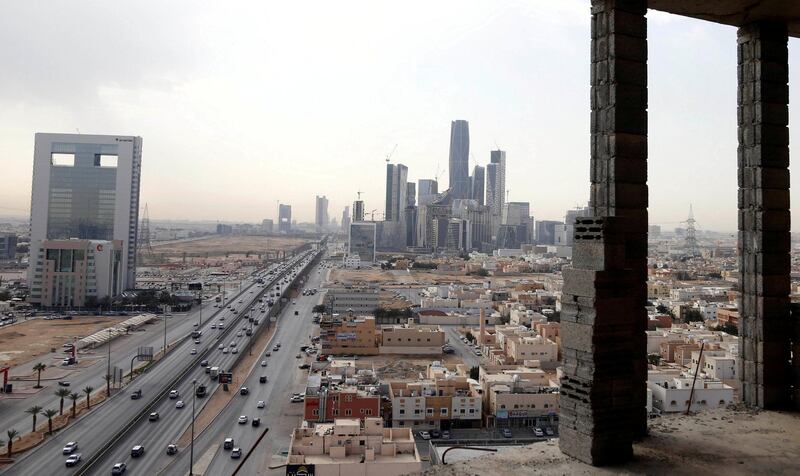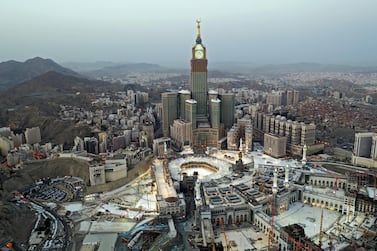Saudi Arabia's construction sector is set to recover this year, benefiting from the Public Investment Fund's move to direct more funding to the local economy.
Contract awards in 2020 in the kingdom slumped by around 60 per cent to 79.5 billion Saudi riyals ($21.2bn) as project owners wrestled with movement restrictions to halt the spread of Covid-19, global supply chain disruptions and reductions in manpower capacity, according to the US-Saudi Business Council.
"As the global economy crawls back to a new normal, the role of the PIF will be instrumental in developing the local economy," the USSBC said.
The Arab world's largest economy increased spending by an additional $42bn in 2020 to deal with the impact of the pandemic. But capital expenditure was cut to $37bn, from a budgeted $46bn, which had a knock-on effect on construction.
The PIF's five-year strategy, launched in January, aims to more than double the value of its assets under management to $1.07 trillion and to commit $40bn annually to develop the domestic economy until 2025. Its contribution "will lessen the burden on the government, which has shouldered much of the capital expenditures over the years", providing up to 85 per cent of the government's recently announced $6tn of available investment opportunities, the USSBC said.
"Although the PIF outlined 13 sectors that will be the focus of its strategic plan, we have already seen the impact on the construction sector. One of the biggest beneficiaries of this strategy in 2021 will be the real estate sector," Albara'a Alwazir, director of economic research at the USSBC, said.
The PIF's Roshn company – launched in August last year to develop urban communities across the kingdom – had already begun awarding contracts by the end of the year, when it began work on its first community in Riyadh.
Roshn "will be very active in 2021 and into the medium term" as it contributes towards the target of increasing home ownership in the kingdom to 70 per cent by 2030, Mr Alwazir said.
The fund is also continuing to back a number of the kingdom's flagship construction projects, such as the $500bn Neom city, the Red Sea Development Project, the Qiddiya entertainment city, Diriyah Gate, Al Ula and others.
Earlier this week, the parent company of Saudi Arabia's biggest contractor, Saudi Binladin Group, said it will hold a meeting with its lenders on Wednesday to provide more details on its restructuring proposals.
Binladin International Holding Group said it "operates in a market with substantial opportunities" that could allow the company to regain its market leadership once it has been recapitalised.
These include "the giga and mega development projects currently under way as well as the massive contracts award growth expected in the kingdom", the company added.








